- Home
- Rick Mofina
Be Mine Page 2
Be Mine Read online
Page 2
“There’s a slug in there. Looks like it’s lodged in the stud.”
Nothing looked out of place in the living room. Turgeon went to the answering machine, listened to the messages, all from Molly Wilson. She noted the time and the number on his call display. The scene techs would scour everything. She joined Sydowski at the doorway to the bedroom where he took a moment to prepare himself for what awaited them beyond the door. He’d come upon murdered children, slain families, the scenes of rampages by insane gunmen, satanic ritual killings, and the suicides of retired cops, many of whom he’d known. But beyond the door was a colleague, a friend, and, Jesus, he swore he could still feel Cliff’s hand on his shoulder from only a few hours ago.
“My best to your old man. See you tomorrow.”
Turgeon took a breath. Sydowski opened the door and entered. For the longest time, he stood over Hooper’s corpse, saying nothing, absorbing the scene. Hooper’s open eyes met his from his death mask. Turgeon took note of Hooper’s gun and ID left on his back by the killer.
“Ready?” Sydowski asked.
Working from opposite sides of the body, Sydowski and Turgeon slid their gloved hands under it to explore for any concealed evidence. The odor was not strong. They felt nothing.
“He’s still warm,” Turgeon said.
Sydowski examined the blood pool around the head. Then using his flashlight he probed along the bedsheet, the floor, and to the wall as if following a trail.
“What is it?” Turgeon asked.
Sydowski went to the adjoining bathroom, inspected the sink, checked a dampened towel and the floor under it, then returned to the bedroom wall. Turgeon was on her hands and knees, studying the floor.
“Looks like tiny blood drops and water,” she said. “Looks like somebody tried a fast cleanup.”
Sydowski stood before the spotless blank wall, examining it.
“Here too. They tried to wash it off the wall,” he said. “Something written...looks like blood.”
THREE
Tom Reed tensed the instant he walked into the San Francisco Star newsroom. No one was at the far corner monitoring the city’s emergency radio scanners this morning.
Listening to them was an inviolable duty.
This was why the Star was getting killed by the Chronicle on breaking news, he thought, casting around the metro section.
No one useful in sight.
No clink of bracelets from Molly Wilson, who sat across from him. Where was she? No sign of Acker, the assignment editor. Something was happening out there. Tom could feel it in the voices of the police dispatchers. It was Bobby’s job to sit by the scanners. That’s what interns did. Where was he? Unable to ignore the transmissions, Tom went over and listened.
“... they’re booked out at the 187 ...”
“... ready to copy? It’s in Upper Market ...”
A 187. A homicide. In Upper Market. You didn’t get many there. Surely, Irene Pepper knows about this, he thought, heading directly to her glass-walled office.
Pepper, the Star’s new metro editor, was standing at her desk taking notes, phone wedged between her ear and shoulder. She’d landed her post five months ago after Bob Shepherd, a legend in the craft, left for the Los Angeles Times. Irene was a strange blend of American-British-Canadian upbringing, in Toronto, London, New York, and Marin County. She’d been a freelancer in Washington, D.C., where she’d married the Star’s Washington, D.C., bureau chief. After he transferred back to San Francisco, Irene joined the Star, writing and editing fashion features.
Two years later she became editor of Special Sections, the ad-driven pages about homes, recipes, lifestyles, and things to do on weekends. After that, she became national editor before taking control of Metro, the paper’s largest editorial department. Installing Irene there was something of a head-shaker, given that she had precious little news experience. But as a manager, she never overspent her budget.
“Excuse me, Irene?” Tom knocked on her open door. “We know about this murder in Upper Market, right?”
“Just a sec,” she said into the phone. “Bobby checked it out this morning. It’s a suicide.”
“No, it’s a homicide. Where is he?”
“I’m sure it’s a suicide. Bobby wasn’t feeling good. I let him go home.”
“So no one’s on the scanners?”
“The new intern comes on in an hour. I’ve got to finish this call.”
Back at his desk Tom took a deep breath, then dialed a police number. While it rang he searched through his clutter for a fresh notebook and came across the managing editor’s recent memo demanding to know why the Star was missing breaking news stories. Irene Pepper is why, he thought. She didn’t think it was important to keep the interns handcuffed to the damn scanners like Bob Shepherd and every other editor in the country did.
“Vickson,” a voice growled over the line.
“Hey, man, it’s Reed. I need a favor.”
“Don’t we all?”
“Buddy, can you help me out on a 187?”
“And how may I enlighten you?”
“I’m hearing some chatter on one in the Clayton, Short area of Upper Market. Can you tell me, is that one a grounder or what?”
“Hold on. I’ve got to put you on hold.”
Tom took a hit of Colombian coffee from his FBI mug, then looked back at Ann, and their twelve-year-old son, Zach, smiling from framed pictures. God, the hell he’d put both of them through over the years.
Some days Tom questioned if his job was still worth it as he reflected on the keepsakes at his desk. The faded clip from the Tribune in Montana with the head FORMER GREAT FALLS NEWSPAPER BOY PULITZER PRIZE FINALIST. Tramping through Great Falls, the Trib bag knotted over his shoulder, the smell of crisp editions, newsprint blackening his hands with each paper he’d deliver. Dreaming under the Big Sky of being a big city crime reporter. Some of the happiest days of his life.
There was the old snapshot of a younger Tom in front of the Golden Gate Bridge with the gang from AP’s San Francisco Bureau. The Associated Press was his first major job in the business after college where he’d met Ann. They got married and moved to San Francisco where she started her first children’s clothing store and he started with AP. It was where his reporting on West Coast crime networks earned him a little glory as a Pulitzer finalist.
Then the Star hired him.
It was funny. In the last few years Tom had reduced his inventory of treasured tearsheets. Gone were the grisly front-page stories he’d displayed like blooddripping trophies. He no longer needed the validation. His success at covering tragedies had bestowed him with its own honors: the healed scars of a fractured marriage and a craving for Jack Daniel’s whiskey whenever a trip into the abyss overwhelmed him.
During his worst time Ann had begged him to quit news reporting, stay home, and write books. But he couldn’t quit. Ever. Yes, his job had exacted a toll on his family. But over the roller-coaster years since he’d become the Star’s chief crime features writer he’d gotten a handle on his life. He’d broken a succession of major exclusives. Most drew national recognition for the paper. He was good. Once he locked on to a story he was relentless. It was in his blood. Being a crime reporter was what he’d dreamed of doing since he was a kid delivering newspapers in Great Falls.
“Still there?”
“Still here.”
“That 187 in the Clayton and Short area is a homicide at the home of an SFPD officer.”
“What?”
“You heard me. Here’s the address.”
“Is the officer the victim or the suspect?”
“Victim.”
“Who is it?”
“That’s all you get from me. I advise you to get over there. It’s getting old. Every news team in town has been there for hours.”
Tom slammed down his phone, turned, and saw Pepper headed his way.
“That 187 is a police officer murdered in his home in Upper Market. We missed it. Everyone’s ther
e but us. I’m on my way.”
Tom thrust the managing editor’s memo into Irene’s hands. Her face reddened as she folded it.
“It’s early,” she said. “Lots of time to catch up.”
Tom’s cold stare threatened to rip open old wounds from ancient battles with Pepper but he didn’t have the desire or the time to get into it now.
“A murdered cop,” she said. “What else do you know?”
“That’s it right now. Since we’re behind I could use some help.”
“This is sensational. Simon!” Pepper waved another reporter over. “We need to be strong on this story, it’ll be huge. People will eat this up. Who’s the victim? Any other details?”
“Nothing yet. Where’s Molly?”
“I don’t know. You go. I want you on this.”
Simon Lepp, the paper’s science writer, joined them at Tom’s desk.
“I’m putting you on a breaking murder story with Tom. You’re going to learn from our master crime specialist.”
“All right.”
“Your job is to guarantee the Star owns this story. You do whatever Tom needs to make it happen. I’ll put more bodies on it. But you’re both on this murder until I take you off. Got it?”
“Sure.” Lepp nudged his round rimless glasses as Pepper strutted away.
Tom shook his head, struggling to find a fresh notebook while concealing his disgust at the whole thing. And why assign Lepp to this story? No offense but he’d prefer a seasoned crime reporter like Molly or Della Thompson.
Lepp was a soft-spoken bookish type who’d covered the science beat for years. He’d never touched a crime story. The guy seldom left his cubicle way off in a far-flung corner. The thing was almost overrun with Boston ferns and spider plants. He was bright. His family had moved around a lot when he was a kid. His father had been some kind of research genius. Lepp had won a slew of awards for producing page-eating eye-glazers about things only Nobel winners at Berkeley and Stanford understood.
“You sure you want to do this?” Tom asked.
“I’m sure. I’ve become a little bored with science. I’ve watched what you and Molly do. I told Irene I thought a switch to breaking crime news would be exciting.”
Tom looked at him. No one else was available to help at the moment.
“Want me to deputize you?”
“Just tell me what to do.”
After making a few quick calls, Tom jotted details on a page in his notebook, then tore it off. “There’s a press conference at ten-thirty at the Hall of Justice, police commission room. You go to that. As soon as they release a name get the library to search for stories on any cases the dead cop may have handled. Track down the victim’s detail, or district, academy buddies, search the newsletters, call POA and OCC.”
“POA and OCC?”
“Police Officers’ Association. You’ve got time to swing by there before the newser. They may know about the victim and friends. OCC, the Office of Citizens’ Complaints, may know of any beefs against the cop. Get them to speculate on whether it could be linked to anything. We’ll get our court guys to ask about cases too. We’ll cast out a wide net and see what we get.”
Tom reached for his jacket just as his desk phone began ringing.
“Right, that’s good. Where’re you headed?”
“I’ll poke around here and there with sources. You go ahead without me. Make sure your cell phone’s on.”
Tom reached for his phone hoping it was Sydowski. If anyone had data on this thing, it would be him.
“Hey, Reed,” Vickson said. “All I’ve heard is the dead guy’s an inspector. A detective.”
“An inspector. Which detail?”
“Don’t know.”
“Thanks.” Tom gulped the last of his coffee, slipped on his jacket, then headed for the news reception area. The switchboard was ringing as the elevator doors opened.
“Tom,” Tammy, the receptionist, said. “You’ve got a call.”
“I have to go.”
“Hang on,” she said into the phone. “Tom, it’s Molly.”
“I’ll take it.” Tammy passed the phone to Tom. “Molly, where are you?”
“The Hall of Justice. Homicide.”
“You’re on this? You’re covering the story?”
“No.” She choked on a sob. “Tom, can you come and get me, please?”
“What’s going on?”
“It’s Cliff.”
“What do you mean?”
The elevator bell chimed. Tom felt something brush his arm.
“Cliff Hooper. He’s dead. I’m the one who found him.” A homicide detective. Molly’s boyfriend. Tom struggled to grasp it.
A delivery of flowers came to reception. “Okay, Molly, hang on. I’m on my way.”
Tom passed the phone back to Tammy, who was smiling at the spectacular arrangement of white roses.
“Aren’t these lovely?” she said to the deliveryman. “Who’re they for?”
“Says here, Molly Wilson.”
FOUR
The Hall of Justice is a grim Stalinesque building rising from Bryant Street amid the low-rent units, office towers, and struggling high-tech firms in San Francisco’s Soma District. It houses the D.A.’s office, courtrooms, jails, and the headquarters of the San Francisco Police Department. It is also the home of punishment, or righteous wrath, depending on your bank account, Tom thought after parking.
He hustled up the steps of the Hall’s grand entrance to the polished stone lobby for a security check and a walk through a metal detector. Riding the elevator to the fourth floor and room 450, the homicide detail, Tom recalled Cliff Hooper. He’d met him at murder scenes, even hunched over a few late night coffees with him. Hooper was a former wide receiver for San Jose State who’d studied philosophy and law. A good guy. A smart, honest homicide cop. Molly’s boyfriend.
Who’d want him dead?
Stepping from the elevator, Tom saw a deputy chief go down the crowded corridor to the detail. He followed him, threading his way through the detectives and uniformed officers, bumping into handcuffs and holstered guns. Keeping his head down, he moved respectfully, for he’d now entered a hallowed zone: cop land in mourning.
Inside, Linda Turgeon was consulting a report with a huge detective. No sign of Molly. Craning his neck, Tom glimpsed Hooper’s partner, Ray Beamon, sitting at his desk across from the empty one that was Hooper’s. High-ranking officers circled him. Upon seeing Tom, Turgeon seized his arm. “Out. Press conference in thirty minutes.”
“I’m looking for Molly.”
Emerging from an office with a report in his hand, Sydowski caught what was happening. “I’ll take care of this.”
Lieutenant Leo Gonzales stepped from his office, head in a file, approaching Sydowski: “... just heard that ballistics is having a little computer trouble and will need more time and Crime Scene is--”
“Hold on, Leo,” Sydowski said. “Come with me, Tom. I want to talk with you.” He took Tom down the hallway. “Molly’s with a crisis worker.”
“I’m sorry about Cliff.”
Sydowski nodded.
“How’s Ray Beamon doing?”
Sydowski deflected his question with another.
“How’s your wife doing?”
“Ann? Oh, her sessions are helping.” Ann had been the victim of a terrifying abduction not so long ago, and the repercussions were still being felt.
“It takes time.”
Neither of them said anything more until they came to a room where Molly was at a table with a middle-aged woman clutching a crumpled tissue. Two ceramic mugs sat untouched between them.
“Hi.” Molly sounded far away.
“Thanks, Fran,” Sydowski said.
Taking her cue, the woman left her card. “Remember, you call me anytime, dear. Doesn’t matter. Anytime.”
“Thank you.”
Tom embraced Molly.
“It’s going to be all right,” he told her. “Just hang on.” S
he nodded as Sydowski lowered himself into a swivel chair. Like her, he hadn’t yet slept. “Everyone’s hurting but what I’m going to tell you is critical.” Sydowski paused to hold Tom in his stare. “We know Molly was close to Cliff and she’s your friend.”
Tom searched her eyes for any signal.
“Look at me. This is critical,” Sydowski said. “She found him, you’re both reporters. She knows things you’ll want to report.”
“What are you getting at? Censorship? Muzzling me?”
“I’m asking you to exercise judgment here.”
“I’m going to write what I know. It’s my right.” Sydowski’s gold fillings glinted as he winced. “That’s just what I’m getting at.”
“I’m sorry for everyone’s loss here. I know this hits us both hard, your squad and my newsroom, but I can’t give you special treatment.”
“That’s not what I’m asking.”
“And I can’t afford to get beat on this.”
“Give me a break,” Sydowski said.
“All right, all right. How about we ‘cooperate’ where we can? Given the Star’s connection here?”
“I won’t make any deals with you. I never have.”
“But things have worked for us before.”
“I’ve got concerns about this one.”
“What is it?”
“He doesn’t--” Molly interjected. “He would like us to be careful about not releasing details about the items I saw or how they were arranged.”
Items? Tom felt ice roll up his spine. “What items? Is this a ritual?”
“Just listen,” Sydowski said. “We can’t let details out. We’ve got to hold back. Molly’s going to hold back. I’m asking you not to make this any more difficult than it is.”
Tom looked at Molly as Sydowski continued.
“If you weaken the case with your reporting it could reduce our chances of an arrest, let alone endangering prosecution down the road. Understand?”
“My job is not to make yours easier. That’s what you always tell me.”

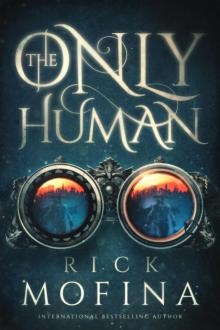 The Only Human
The Only Human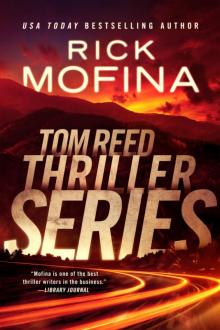 Tom Reed Thriller Series
Tom Reed Thriller Series![[Tom Reed and Walt Sydowski 04.0] No Way Back Read online](http://i1.bookreadfree.com/05/tom_reed_and_walt_sydowski_04_0_no_way_back_preview.jpg) [Tom Reed and Walt Sydowski 04.0] No Way Back
[Tom Reed and Walt Sydowski 04.0] No Way Back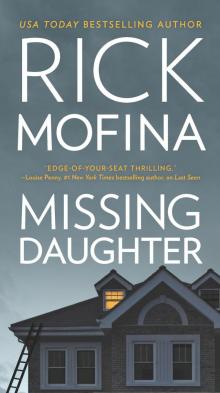 Missing Daughter
Missing Daughter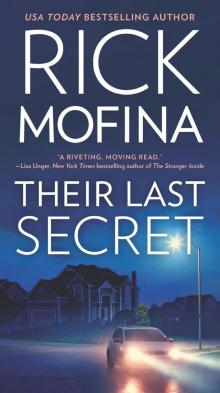 Their Last Secret
Their Last Secret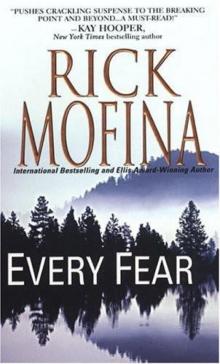 Jason Wade - 02 - Every Fear
Jason Wade - 02 - Every Fear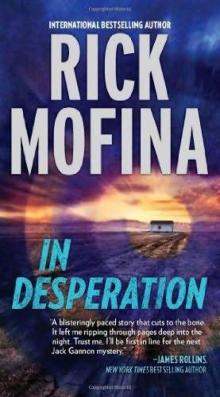 In Desperation
In Desperation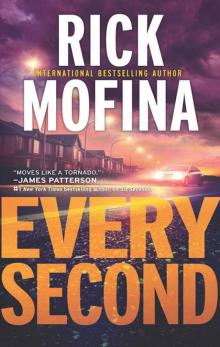 Every Second
Every Second Full Tilt
Full Tilt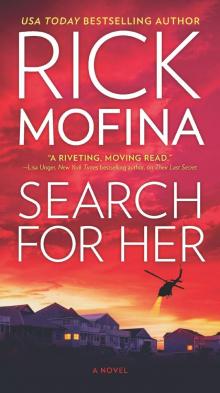 Search for Her
Search for Her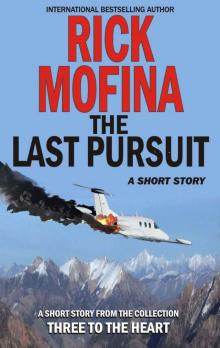 The Last Pursuit
The Last Pursuit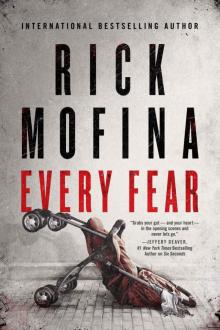 Every Fear
Every Fear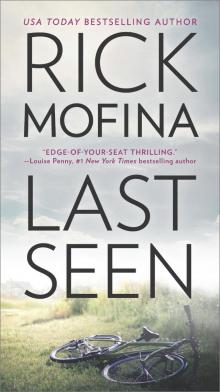 Last Seen
Last Seen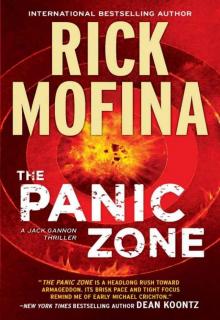 The Panic Zone
The Panic Zone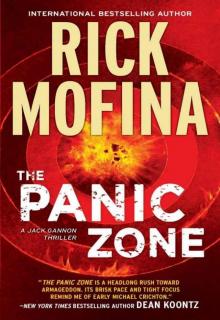 The Panic Zone jg-2
The Panic Zone jg-2 Free Fall
Free Fall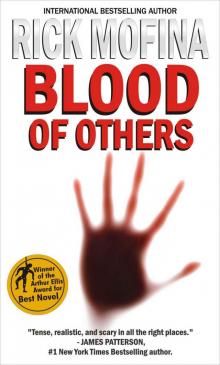 Blood of Others
Blood of Others![[Jason Wade 02.0] Every Fear Read online](http://i1.bookreadfree.com/i1/03/31/jason_wade_02_0_every_fear_preview.jpg) [Jason Wade 02.0] Every Fear
[Jason Wade 02.0] Every Fear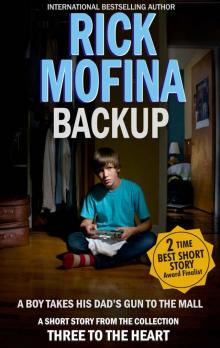 Backup
Backup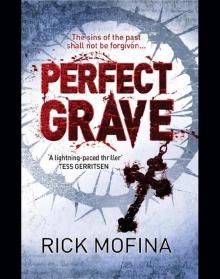 Perfect Grave
Perfect Grave Into the Dark
Into the Dark Whirlwind
Whirlwind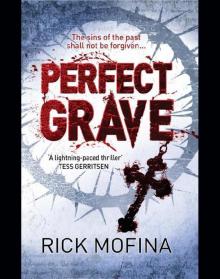 Perfect Grave jw-3
Perfect Grave jw-3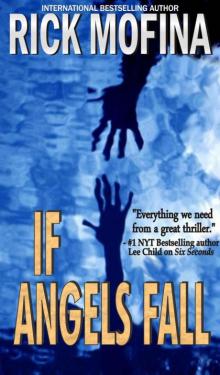 If Angels Fall (tom reed and walt sydowski)
If Angels Fall (tom reed and walt sydowski)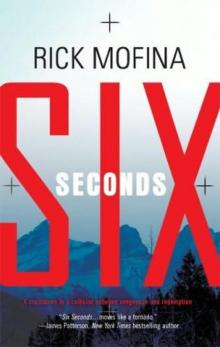 Six Seconds
Six Seconds If Angels Fall
If Angels Fall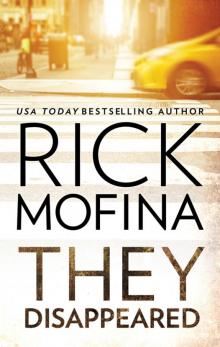 They Disappeared
They Disappeared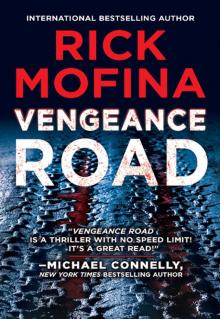 Vengeance Road
Vengeance Road Before Sunrise
Before Sunrise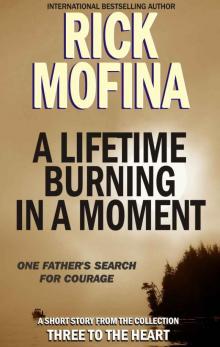 A Lifetime Burning in a Moment
A Lifetime Burning in a Moment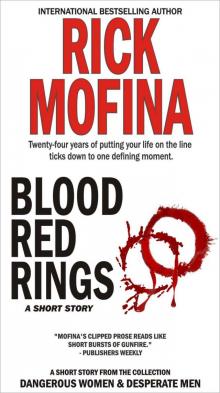 Blood Red Rings (Dangerous Women & Desperate Men)
Blood Red Rings (Dangerous Women & Desperate Men)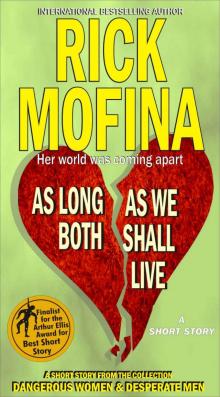 As Long As We Both Shall Live (Dangerous Women & Desperate Men)
As Long As We Both Shall Live (Dangerous Women & Desperate Men)![[Tom Reed and Walt Sydowski 01.0] If Angels Fall Read online](http://i1.bookreadfree.com/i2/04/12/tom_reed_and_walt_sydowski_01_0_if_angels_fall_preview.jpg) [Tom Reed and Walt Sydowski 01.0] If Angels Fall
[Tom Reed and Walt Sydowski 01.0] If Angels Fall Cold Fear
Cold Fear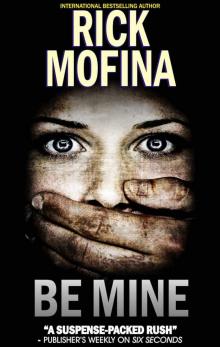 Be Mine
Be Mine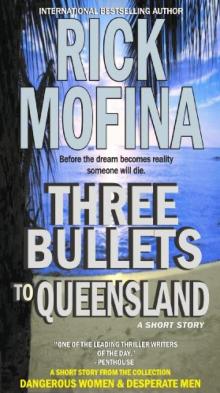 Three Bullets To Queensland
Three Bullets To Queensland